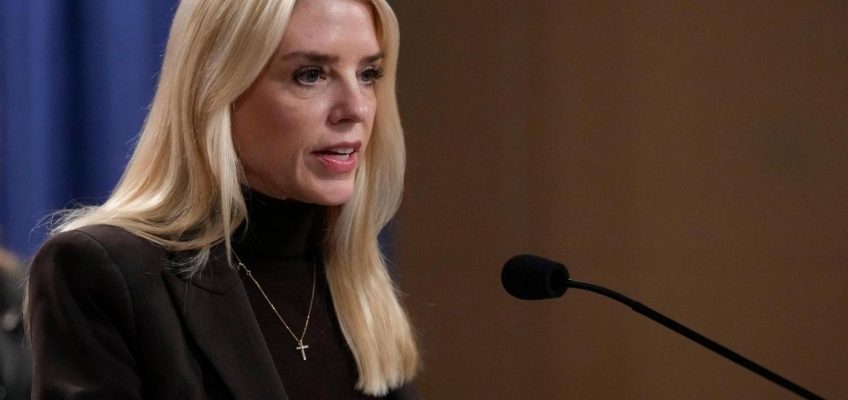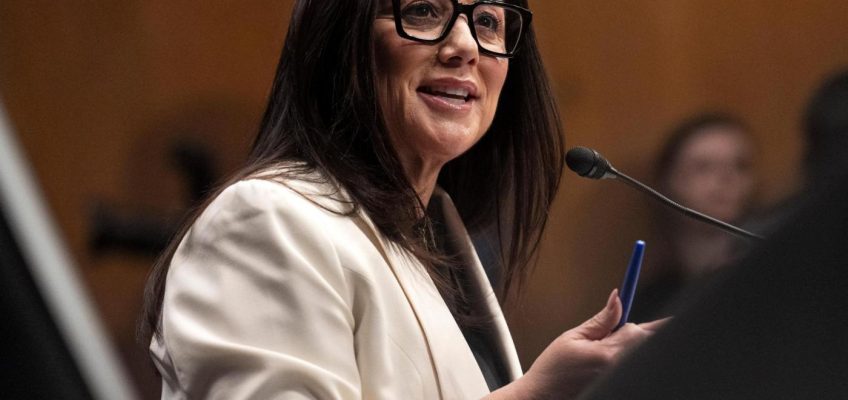By ALANNA DURKIN RICHER, Associated Press
WASHINGTON (AP) — The Justice Department is abandoning cases that sought to force police and fire departments to end what the Biden administration alleged were discriminatory hiring processes, Attorney General Pam Bondi said Wednesday in the latest move by the Trump administration to end government support for efforts to increase diversity.
A Justice Department official said the administration is walking away from four cases, including one that led to a settlement agreement resolving an investigation into discriminatory hiring practices affecting Black and female applicants to the Maryland State Police. It’s part of a broader effort by President Donald Trump’s administration to roll back initiatives and programs promoting diversity, equity and inclusion, which Republicans contend threaten merit-based hiring.
Related Articles
Senate committee recommends Lori Chavez-DeRemer’s confirmation as Trump’s labor secretary
Trump plans tariffs on Mexico and Canada for March 4, while doubling existing 10% tariffs on China
USAID workers will be given 15 minutes to clear their workspaces as the agency gets dismantled
As Trump’s deadline to eliminate DEI nears, few schools openly rush to make changes
In lawsuit filing, Pentagon says transgender troops can’t serve unless they meet a warfighting need
“American communities deserve firefighters and police officers to be chosen for their skill and dedication to public safety – not to meet DEI quotas,” the attorney general said in an emailed statement.
In the Maryland case, the Biden administration announced in October that it had reached an agreement with state police to change the ways applicants are tested after the department alleged police used a written test that discriminated against Black candidates and a physical fitness test that discriminated against female applicants.
The Biden administration found the tests disqualified Black and female applicants from the hiring process at significantly disproportionate rates, concluding that the tests violated a federal statute that prohibits employment discrimination based on race, sex, color, national origin, and religion.
Bondi’s chief of staff, Chad Mizelle, said in a social media post that the Biden administration had sought to punish police and fire departments “for using race-neutral hiring tools,” even though he said there is “no evidence that the departments engaged in intentional discrimination.”
Maryland State Police did not immediately respond to a request for comment Wednesday evening.
Other cases were related to fire or police departments in North Carolina, Georgia, and Indiana, Mizelle said.
Trump signed an order on his first day in office directing federal agencies to terminate all “equity-related” grants or contracts. He signed a follow-up order requiring federal contractors to certify that they don’t promote DEI.




